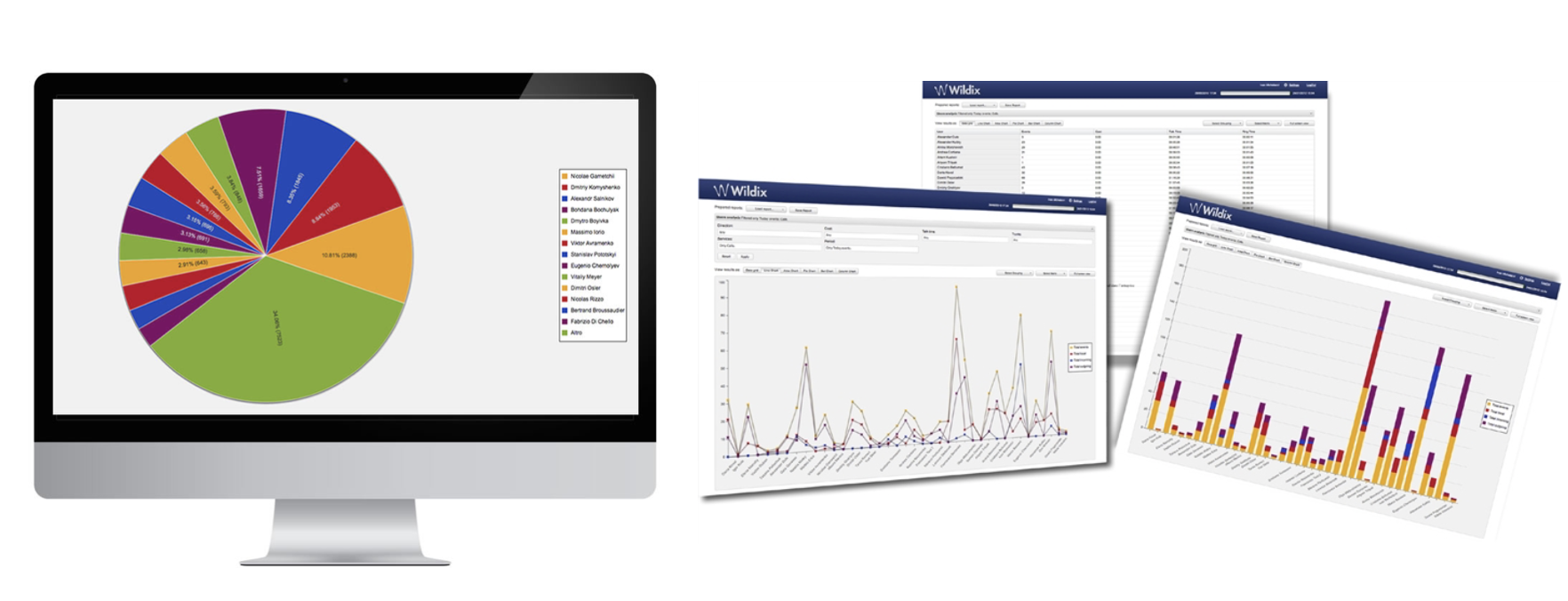
In this blog article we will examine which tools are available for monitoring and analyzing the communication history of the system.
The UC system typically provides one or more of the following resources:
- CDR (Call Data Record) – information about calls
- Call Groups / Queue Logs – or other specific logs
- Syslog – information about the system
- Chat / geolocation logs
This information can be used by our application and integrated with the UC server to perform a specific monitoring and analysis or show reports.
Syslog
It is important to troubleshoot any technical issues that might arise.
CDR
A UC server generates a CDR (Call Data Record) for each call. The following data should be available:
- Call origin
- Call destination
- Wait time in a queue
- Call duration
- Call time
- Tags
The information collected can be used for monitoring and analyzing trends and overall team performance. Usually, this type of information is stored in one or more of the following formats:
- CSV files
- Relational databases like MySQL or Microsoft SQL
- RADIUS (Remote Authentication Dial-In User Service) or others
As this information is only available after the end of the session, it cannot be used for real-time activities, like displaying a pop-up with customer information.
Queue
In a call center performance analysis, besides the CDR information, other data can be relevant including:
- Time spent waiting in a group
- Time of log-in or log-off of an agent
- Disconnection performed by a team member or user
From my experience, the CDR typically provides enough information to calculate the SLA (service-level agreement) of each call. Additionally, the systems should offer enough flexibility to allow us to add the missing information.
Other events can be easily stored by a CRM system (for example, the arrival or departure of a team member).
Chat / Geolocation
History, in a modern UC system, should include other information besides calls records, such as:
- Chat sessions
- Presence changes
- Geolocation changes
Relational databases are often easier to integrate and are the preferred method for storing this information.
